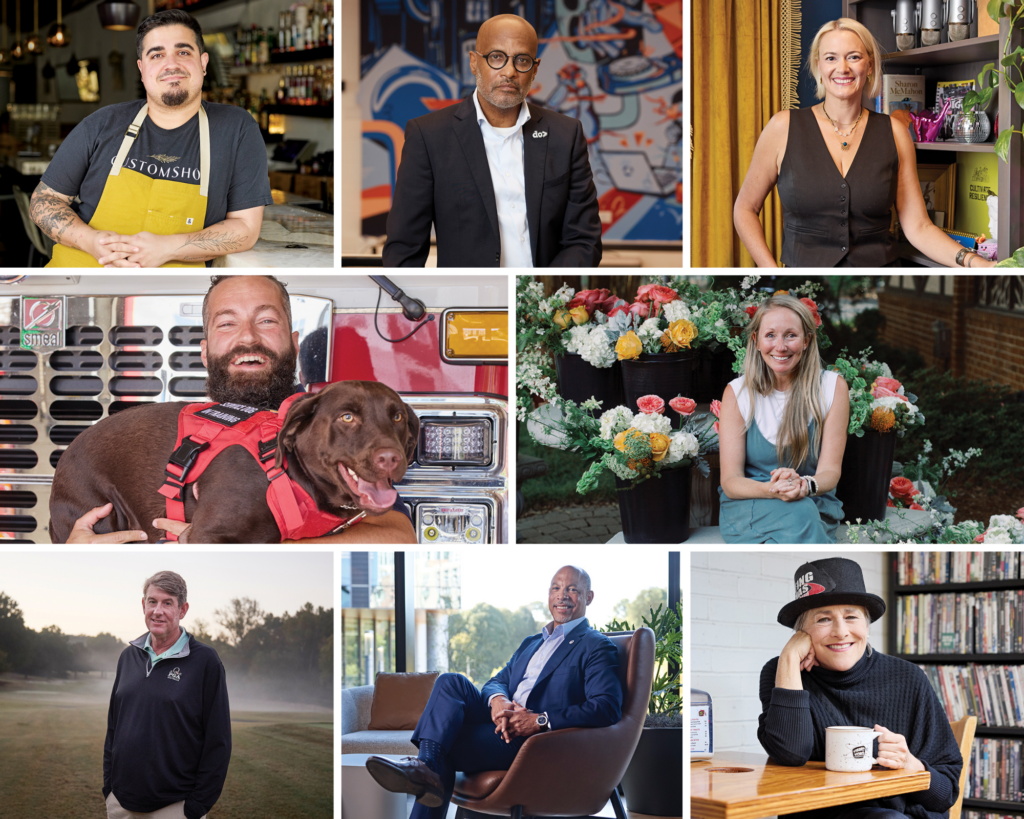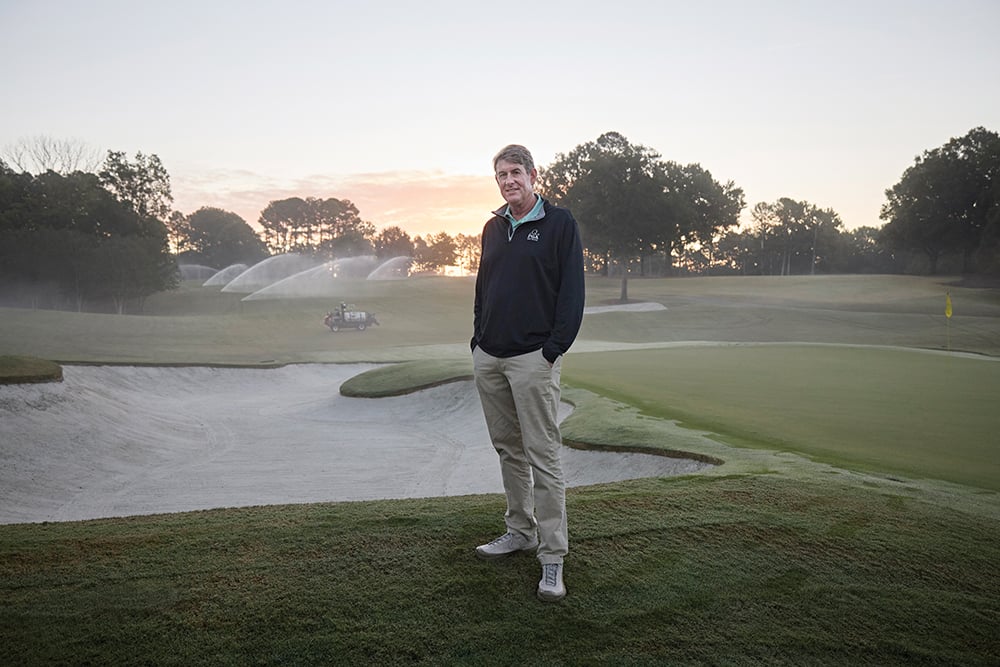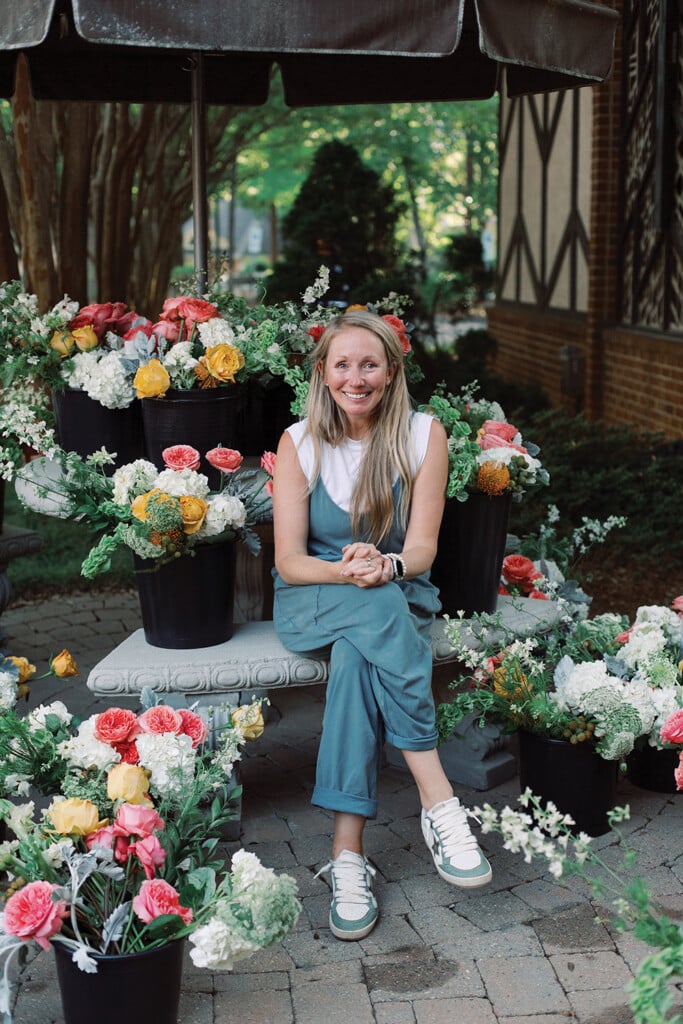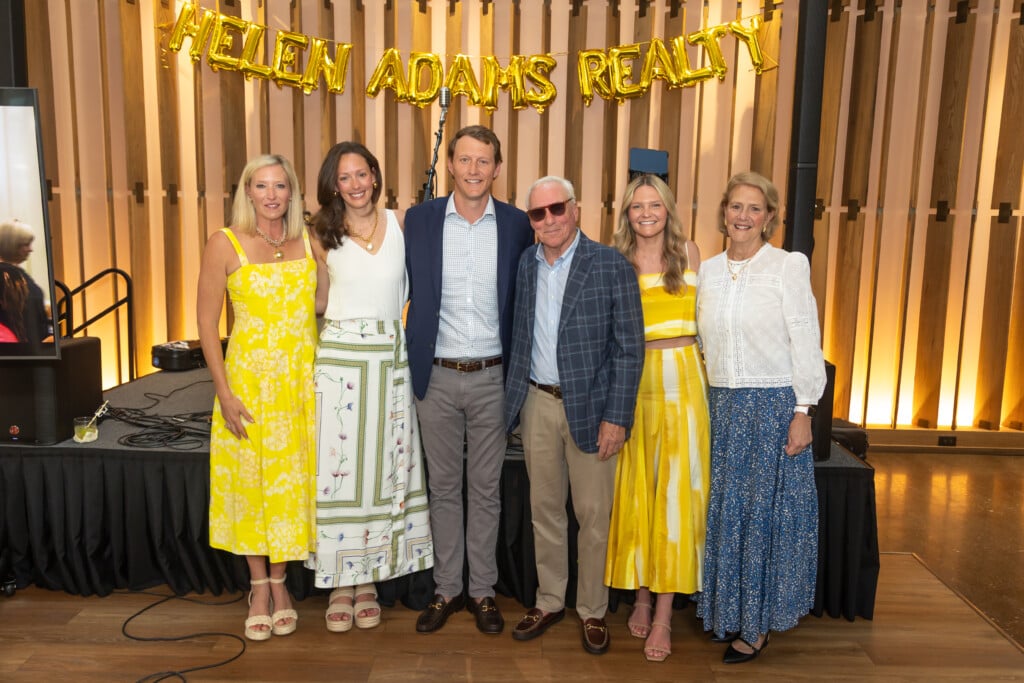2025 Charlotteans Of The Year: William McNeely
Not even a double lung transplant could contain the Do Greater Charlotte founder. He wants young entrepreneurs to be just as determined
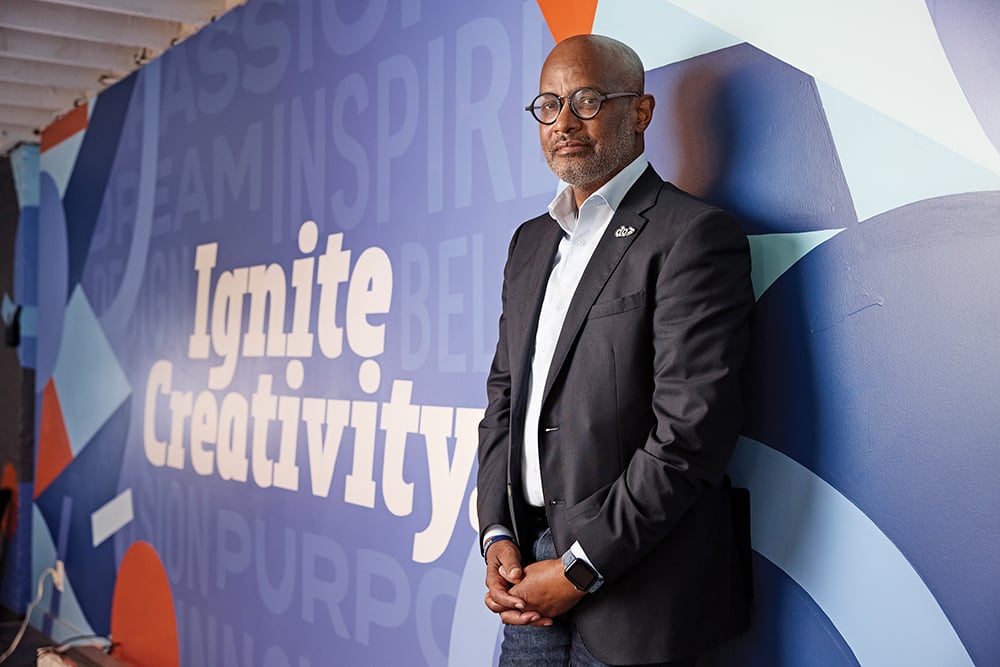
Giving a tour of a gutted two-story building uptown, William McNeely switches between the present and future tenses, sometimes in the same sentence. He’s surrounded by half-built walls, packages of joint compound, and dangling electrical cables, but he knows what’s coming: the future Creative Lab Uptown.
“This is the digital studio,” he says, in a room devoid of any technology fancier than a fluorescent light. “We’ve got more than a hundred thousand dollars of photography and videography equipment that we can offer our kids.”
McNeely, trim and stylish with a salt-and-pepper beard, is the founder and CEO of Do Greater, a small Charlotte nonprofit designed to foster creative and entrepreneurial skills, particularly among the city’s underserved teenagers and young adults. “The things that attract them into our spaces are creative and content development,” he says. “But when you have a DJ class, you’re not only teaching kids a skill—you’re also teaching them critical thinking and problem solving, because they’re starting a DJ business. They can apply that entrepreneurial mindset to school and life.”
Over the past 104 years, the building at 500 N. Tryon St. has served as an Oldsmobile showroom and the architectural offices of Harvey Gantt (before he became mayor of Charlotte in 1983). Now, McNeely wants its 20,000 square feet to serve as a crossroads, allowing different communities in Charlotte to interact. In the basement will be state-of-the art facilities for audio engineering, screen printing, and filming, and classes to teach people the skills to operate that equipment. On the top floor, 19 small offices will be available for fledgling businesses and support organizations to rent. On the ground floor, a coffee shop will pull in foot traffic (and provide jobs for young workers and an income stream for the Lab). That’s also where the basement and the top floor merge: Students can meet Charlotte’s young entrepreneurs upstairs, while those businesses can employ the up-and-coming artisans downstairs when they need a radio ad or a web video or 1,000 T-shirts.
McNeely stands in the middle of the “Savoy Room,” soon to be a stylish meeting space that can be rented out, and paraphrases wisdom from the Stanford University design program that he’s made his own: “If you want creative people to do creative things, put them in a cool, creative space.”
McNeely, born in 1964, grew up on the west side; he and his siblings were bused to South Mecklenburg High School, which taught him an early lesson in how “exposure and access” can change the course of a life. “That environment was very different than the environment we lived in,” he recalls. “Seeing what was possible, we gained confidence, and we started competing.”
He studied mechanical engineering at N.C. State but also was a drum major, a jazz musician, and a student council leader. “They couldn’t keep me contained,” he says with a chuckle. “I was pretty outspoken.” As an adult, he spent most of his career working for Apple in educational technology, helping schools and colleges integrate the company’s technology into their various departments: “Apple went through cycles of great products and not-so-great products, but there was always revitalization, which inspired me.”
In 2016, however, McNeely was diagnosed with idiopathic pulmonary fibrosis, a disease that thickens the linings of the lungs and makes it difficult to breathe. “Even though I was carrying oxygen tanks around behind me every single day, 24 hours a day, I was pretty positive.” The experience spurred him to quit Apple and incorporate Do Greater in 2017. He knew he wanted to make a difference in economic mobility, even if he wasn’t sure at first how he was going to do that.
“It’s a terminal disease,” McNeely says matter-of-factly. In February 2019, he went for a lung transplant evaluation to the Pulmonary Fibrosis Clinic at Duke Health; he was informed later that he had two weeks to live. He got extremely lucky: The organs became available far earlier than usual, and he underwent double lung transplant surgery in late March. “Sunday morning, I woke up breathing 100%,” he says. “Rehab normally takes six to eight months, but by Memorial Day, I was back in Charlotte, pitching Do Greater onstage at Creative Mornings.”
Do Greater started with a mobile Creative Lab, operating out of a converted Lance cookie truck. Looking to “intentionally create collisions between kids and professionals,” McNeely led the next project: the Creative Lab West, established in an unused 5,000-square-foot basement underneath the Shiloh Institutional Baptist Church. “We now serve about a thousand kids a year,” he says. “And we host everything from the city’s Amp Up entrepreneurial program to informational sessions on the transit tax.”
McNeely’s vision was originally hyperlocal, making creative incubators in the neglected Charlotte neighborhoods now called (slightly euphemistically) “corridors of opportunity.” But he came to see how, just as busing changed the life of his family, bringing young people from corridors of opportunity into uptown could put them at the center of the action. “The critical piece for us now,” he says as he strides through the warren of 19 small offices, “is activating the economic engine of Charlotte. We can connect to our partners and sponsors, allowing our community to take advantage of some of those resources.”
When Charlotte Center City Partners sponsored a contest in 2023 for proposals to revitalize vintage buildings in uptown, the Do Greater proposal for the Creative Lab Uptown (done in partnership with the architecture and design firm Gresham Smith and DPR Construction) came in second place, winning $2,500 in seed money—but the first-place winner, the property management company Asana Partners, donated its $15,000 prize to Do Greater.
McNeely’s life since then has been equal parts planning and fundraising—Creative Lab Uptown required a $5 million capital campaign. But it’s scheduled to open by the end of this year, marking a moment when reality will catch up with the vision in McNeely’s head. He stands in the middle of a future podcasting studio, looks around at its unfinished walls with a grin, and says, “I believe I was given a second chance for a reason.”
